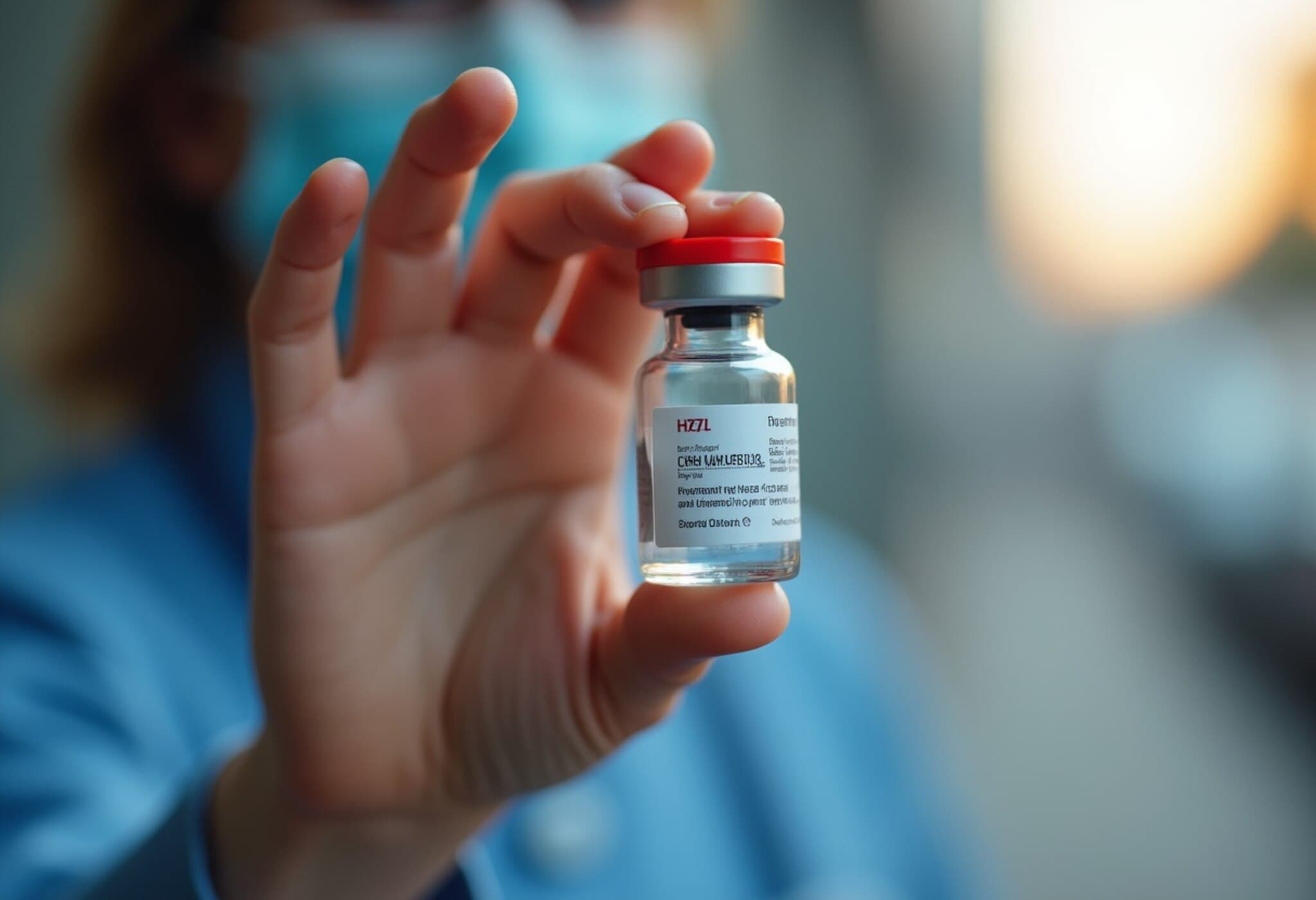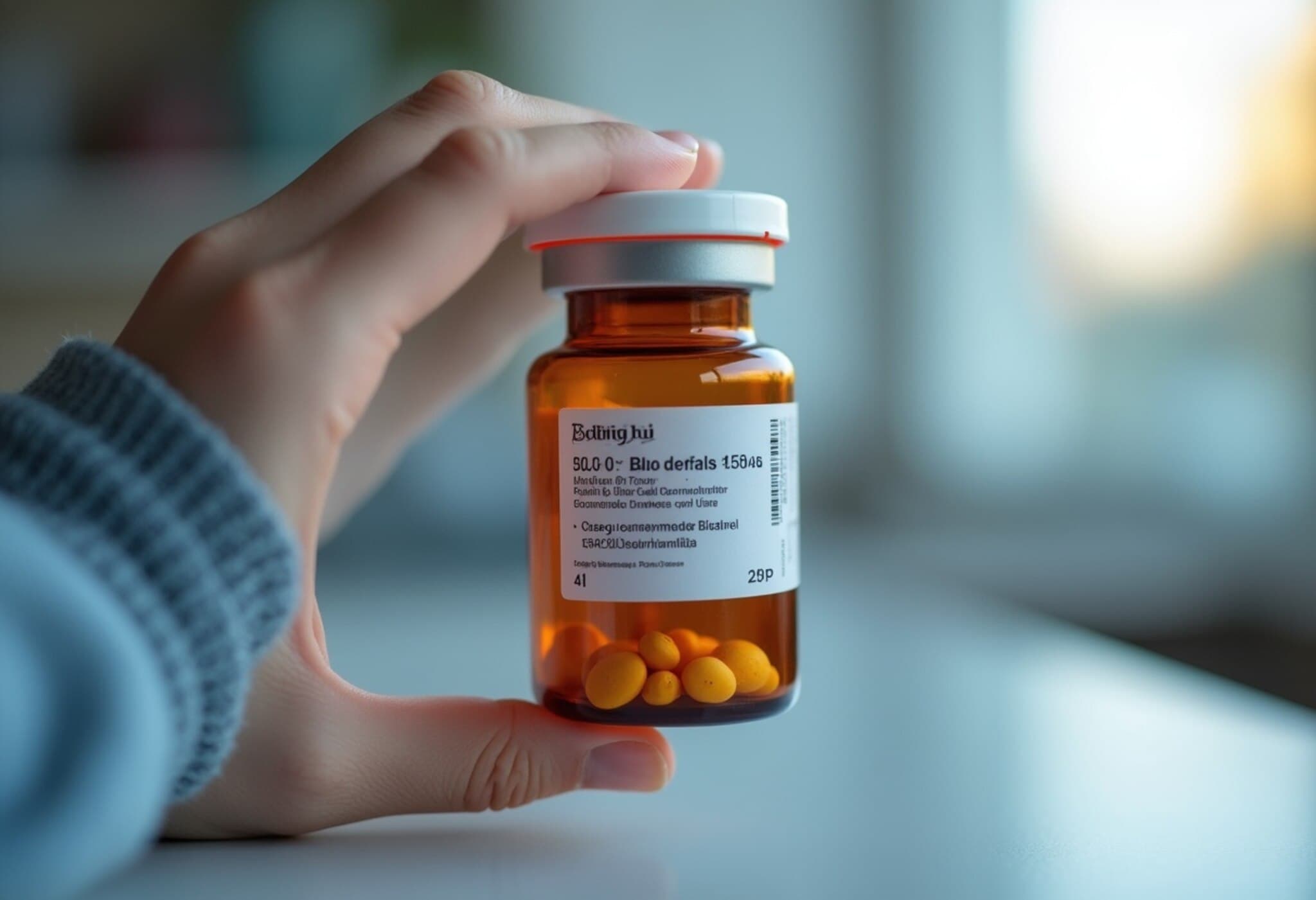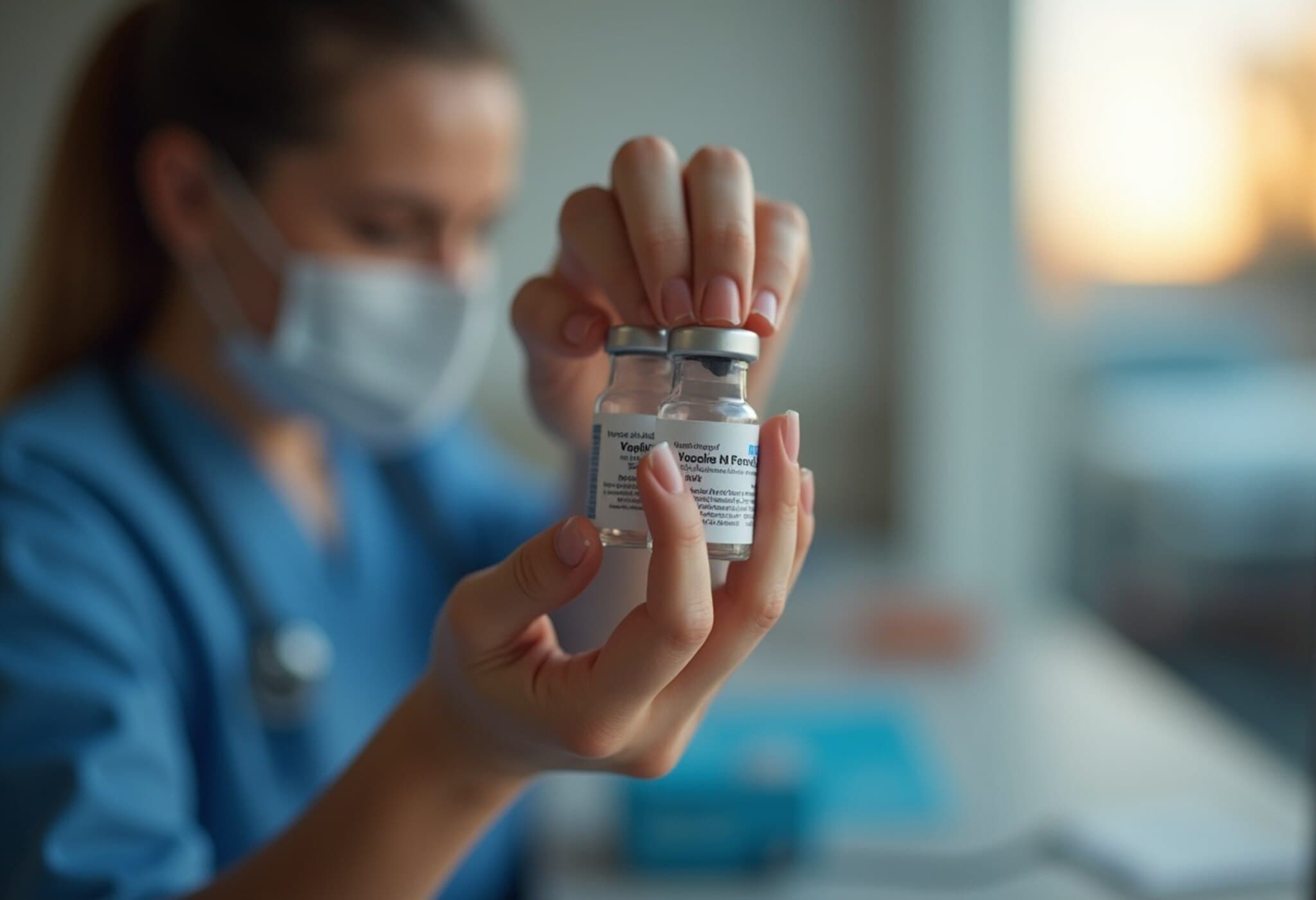Emerging Hope: GLP-1 Drugs as Potential Gamechangers for PCOS
For millions of women in the United States, Polycystic Ovary Syndrome (PCOS) represents a complex and often frustrating hormonal disorder with limited effective treatments. Recently, a new class of medications known as GLP-1 receptor agonists—primarily developed for diabetes and weight management—has sparked hope as a transformative option for many suffering from PCOS symptoms.
Grace Hamilton’s Journey: A Patient’s Perspective
Grace Hamilton, 27, endured years of unexplained symptoms—hair loss, heavy and irregular periods, anxiety, and persistent weight gain. Her eventual diagnosis of PCOS in 2021 finally provided clarity, but traditional treatments like birth control and lifestyle changes yielded only modest improvements.
In 2024, Grace began participating in a clinical trial involving semaglutide, the active ingredient behind popular drugs Wegovy and Ozempic. Remarkably, her menstrual cycle resumed within two weeks, and over ten months, she lost 50 pounds, experienced hair regrowth, and saw significant mental health improvements.
"It was the missing link for me," Grace reflects. "Combining it with diet and exercise finally made a difference.”
Understanding PCOS: A Multifaceted Hormonal Disorder
PCOS affects an estimated 5 to 6 million women of reproductive age in the U.S., yet it remains vastly underdiagnosed. Characterized by elevated androgen levels, it manifests in symptoms such as irregular or painful periods, excess hair growth, acne, and is the leading cause of infertility among women.
Metabolic complications are central to PCOS pathology. Many women with PCOS experience insulin resistance, prompting their pancreas to produce excess insulin. This not only encourages weight gain but also disrupts the hormonal balance, worsening symptoms. Approximately half of women with PCOS also contend with obesity or Type 2 diabetes.
The Treatment Landscape: A Critical Need for Innovation
Currently, PCOS management relies on hormone regulation with birth control, lifestyle modifications, and the diabetes drug Metformin. However, these approaches often target isolated symptoms and have seen little evolution over decades.
Dr. Melanie Cree, pediatric endocrinologist at Children’s Hospital Colorado, emphasizes the gap: "Primary therapies for PCOS symptoms haven’t changed in nearly 50 years. The unmet need is massive." Her ongoing research explores GLP-1 drugs’ role in reversing insulin resistance and reducing androgen levels, which may provide more comprehensive symptom relief.
Why GLP-1 Drugs May Work for PCOS
GLP-1 receptor agonists improve insulin sensitivity and promote weight loss through several mechanisms, such as slowing gastric emptying, reducing appetite, and enhancing insulin secretion when blood sugar is elevated. This pharmacologic action could indirectly reduce ovarian testosterone production, alleviating hallmark PCOS symptoms.
In Dr. Cree’s recent trial of adolescent and young adult females with PCOS, initial data from 11 participants showed that eight lost over 10% of body weight and experienced significant testosterone reductions. Five saw testosterone levels normalize, and six reported more regular menstrual cycles. Yet, responses vary — not all women lose significant weight or hormonal imbalances with GLP-1s, underscoring the need for tailored treatment approaches.
Anecdotal Success Stories Bolster Encouragement
Beyond clinical trials, surveys indicate that many women with PCOS experience improved menstrual regularity and reduced bleeding duration while on GLP-1 therapy. For example, Natural Cycles reported 64% of surveyed PCOS patients noted more predictable periods after starting GLP-1s, and 20% experienced shorter bleeding.
Haley Sipes from Kentucky recounts her struggles prior to diagnosis: despite losing 75 pounds through diet and exercise, her weight plateaued and symptoms persisted until she began Zepbound (Eli Lilly’s semaglutide-based therapy). Within months, she lost an additional 60 pounds, reduced inflammation and joint pain, and saw her hormonal symptoms significantly improve. "I’m a better version of myself," Haley says. "My life feels more enjoyable without being controlled by food cravings and mood swings."
Barriers Remain: The Insurance and Regulatory Maze
Despite promising early results, GLP-1 therapies are not yet FDA-approved for PCOS, which hinders insurance coverage and broad access. Many insurers restrict GLP-1 coverage to diabetes indications, making out-of-pocket costs—around $1,000 monthly—prohibitive for many.
Advocates like Sasha Ottey, executive director of PCOS Challenge, urge for expanded research and insurance recognition. She highlights that nuanced patient differences—age, symptom profile, presence of obesity—must inform treatment strategies.
Compounding pharmacies have offered some relief by producing unapproved versions at lower costs, but this practice raises safety concerns and faces pushback from manufacturers. Endocrinologist Dr. Alyssa Dominguez from USC warns: "The safety of compounded drugs is unknown compared to FDA-approved medications with established profiles." Patients like Grace Hamilton, currently appealing insurer denials, underscore the frustrated demand for more flexible care options.
Policy Perspectives and Future Outlook
Recent political developments, such as the rejection of certain Medicare and Medicaid mandates to cover obesity drugs, complicate access. Meanwhile, pharmaceutical companies and researchers are encouraged to conduct larger, longer studies to establish clear clinical endpoints tailored for PCOS treatments.
Expert Reflection: The Road Ahead for PCOS Care
While the initial data surrounding GLP-1 receptor agonists in PCOS management is encouraging, much remains unknown. As Dr. Karen Tang, an OB-GYN specializing in women’s health, cautions, "PCOS is a heterogeneous condition—symptoms and hormonal levels vary widely, and we need deeper understanding of the underlying mechanisms."
Nonetheless, the integration of GLP-1 therapy could herald a paradigm shift, offering women more hope of symptom relief, fertility improvement, and enhanced quality of life.
Key Takeaways for Patients and Providers
- PCOS affects millions but has no universally effective treatment.
- GLP-1 drugs, though unapproved for PCOS, demonstrate promise through weight loss and insulin sensitivity improvements.
- Individual responses vary; ongoing trials aim to clarify efficacy and safety.
- Insurance coverage remains a significant hurdle, limiting patient access despite FDA-approved uses for related conditions.
- Comprehensive research and tailored protocols are essential to move GLP-1s from experimental to standard care.
Editor’s Note
The potential of GLP-1 receptor agonists offers a glimmer of hope for a condition that has long been underrecognized and underserved in women’s health. This evolving therapeutic frontier calls for urgent investment in large-scale clinical trials, insurance reform to broaden access, and deeper scientific inquiry into PCOS’s complex physiology.
Questions linger around long-term safety, differential patient responses, and the psychological impacts of hormonal treatments. As this story unfolds, it underscores the necessity for a patient-centered approach that moves beyond symptom management toward holistic and personalized care.
For women facing the daily challenges of PCOS, the promise of effective new options is more than scientific—it is profoundly human.



















